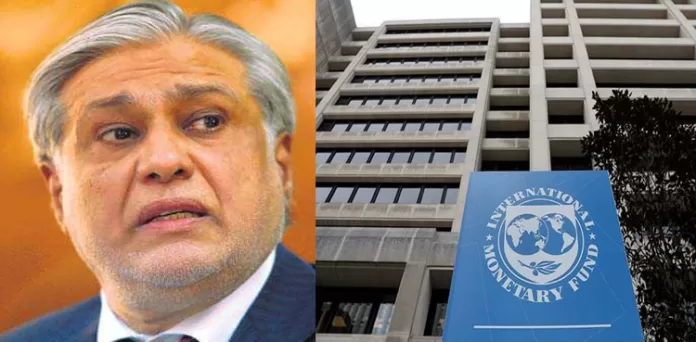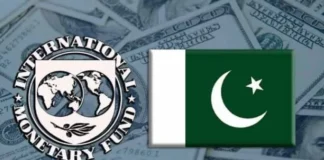Ishaq Dar, Pakistan’s finance minister, has expressed objection to the concept of Pakistan joining a new IMF rescue plan without the new administration’s approval.
At a news conference, Dar stressed the importance of democratic justice and said that the decision to enter into any future IMF agreements should be made by the government that is elected after the current programme expires on June 30.
The minister also emphasised Pakistan’s efforts to satisfy IMF standards and expressed optimism that the ninth review will be successfully completed before to the program’s end.
Minister Dar told reporters during the press conference that the coalition government had given the IMF budgetary details and expressed confidence that the budget figures supplied were accurate.
He indicated that there were no problems with the statistics supplied and that Prime Minister Shehbaz Sharif had consented to sharing them. The ninth review can only be opened up and the remaining monies from the IMF’s Extended Fund Facility can only be secured if this transparency is achieved.
Pakistan has been asked to execute a number of difficult measures as part of the current IMF plan, including the elimination of energy subsidies, enabling the rupee to float against the US dollar, hiking taxes and levies, and limiting imports.
By taking these steps, Pakistan hopes to solve its balance-of-payments problem and lessen the weight of its foreign debt. The endeavour has become increasingly challenging as a result of the nation’s economic difficulties, political unpredictability, and a drop in foreign investment.
Also Read
There is only enough time for one last board review before the $6.5 billion Extended Fund Facility is supposed to come to an end, according to Esther Perez Ruiz, the IMF’s resident representative for Pakistan.
Ruiz underscored the necessity for Pakistan to resolve the $6 billion funding shortfall by presenting a budget for FY24 that is in line with programme goals and restoring the effective operation of the foreign currency market. These steps will open the door for the last evaluation and the distribution of the remaining monies.
Ishaq Dar, Pakistan’s finance minister, highlighted the significance of democratic norms in determining Pakistan’s participation in any upcoming IMF initiatives. He emphasised that rather than being imposed on a new administration, the choice to start a new plan should be made by the government that is elected when the current programme comes to an end.
Dar’s position represents the requirement to confirm that any pledges made are consistent with the goals and regulations of the elected government, promoting a fair and democratic method.
Ishaq Dar, the finance minister of Pakistan, has expressed his disapproval of the unconstitutional imposition of a new IMF rescue scheme. He asserted that any future deal should be up to the new administration, allowing them to craft pledges and policies that are consistent with their mandate.
To achieve sustainable growth and development, Pakistan must strike a balance between economic stability and democratic decision-making as it strives to satisfy the IMF’s conditions and release the remaining money.





